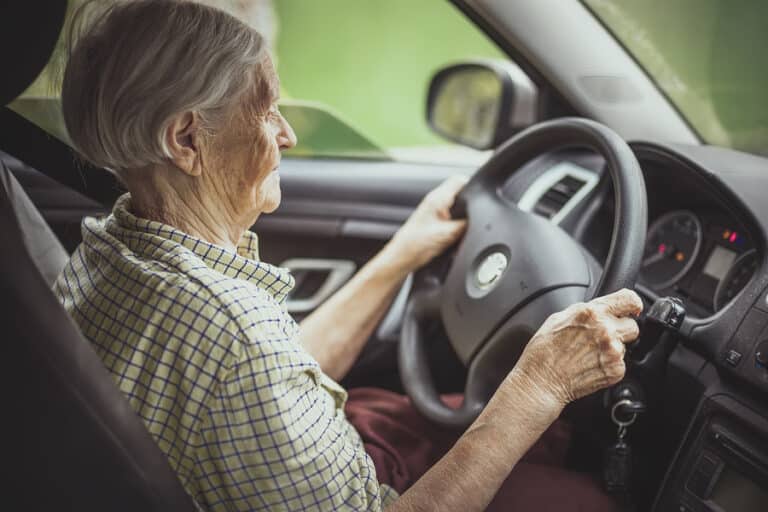There are some big concepts that people associate with driving. They might look at driving as a means of remaining independent, for instance, or as a symbol of freedom. When driving is something that is no longer safe, those big concepts can feel threatened and can cause aging adults to react in ways that family caregivers don’t always expect. They might even refuse to give up driving, even when there is evidence that indicates they should. Solutions to the problem, like bringing in 24-hour home care providers, might be something to consider.
Aging and Driving
Just because someone is older, that doesn’t automatically mean that they can’t drive any longer. There are factors about aging that can make driving unsafe, however. Diminished vision, slow reaction times, and difficulty controlling the car are all reasons why seniors might be unable to drive. If family caregivers suspect that seniors shouldn’t be driving any longer, it’s important to gather more information and do some compassionate investigation to learn more.
Signs it Is Time to Re-evaluate
Family caregivers need to understand what signs mean it’s time to seriously talk about driving with their aging adult. Hearing and vision changes are big concerns because these changes impact whether seniors can see road signs and traffic signals, which directly impacts safety. Slower reaction times can mean that sudden stops or changes in the traffic around them are a safety risk, too. Arthritis, muscle weakness, and cognitive decline all contribute to driving issues, too. If seniors are experiencing a great many of these challenges, it’s definitely time to talk more about finding other options.
Deciding to Stop Driving
Forcing seniors to stop driving tends to backfire pretty quickly. It’s much better when family caregivers and aging adults are able to talk openly about what’s happening and what the solutions might be. Home care is a great answer, for instance, because it means that seniors have help with all sorts of situations, including transportation. Laying down a hard and fast rule may not be the answer. The conversation requires some tact and possibly talking with a third party, like doctors and other healthcare providers.
Lining Up Alternative Transportation
Before taking away keys or otherwise locking down driving abilities, it’s vital that seniors have additional options. 24-hour home care is a solid solution for family caregivers to consider, mainly because elder care providers are available around the clock to help. This means that whenever seniors need transportation help, along with other types of help, they’ve got someone right there with them who can offer the necessary support.
Talking about seniors and driving involves treading a delicate balance between keeping seniors safe and helping them maintain independence. Offering solutions like 24-hour home care support ensures that seniors understand that they’re not being restricted or tied down. Keeping them safe doesn’t have to mean that they’re stuck at home without any way to get wherever they want to go. Removing that fear can go a long way toward helping seniors accept this new phase of life in which they aren’t driving, but are still vital members of their communities.
If you or an aging loved one are considering 24-hour home care in Granbury, TX, please contact the caring staff at Clear Path Home Care today. Call (817) 631-7710.
Clear Path Home Care provides compassionate, high quality home care in Bosque County, Hill County, Navarro County, Henderson County, Erath County, Somervell County, Johnson County, Ellis County, Parker County, Tarrant County, Dallas County, Kaufman County, Rains County, Hood County, VanZandt County, and Rockwall County in Texas.
- Parkinson’s Disease: Understanding Causes, Symptoms, and Treatment - May 23, 2024
- Unexpected Ways Companion Care Can Help Your Mom - May 14, 2024
- Rituals to Help a Senior Practice Mindfulness Everyday - May 9, 2024






